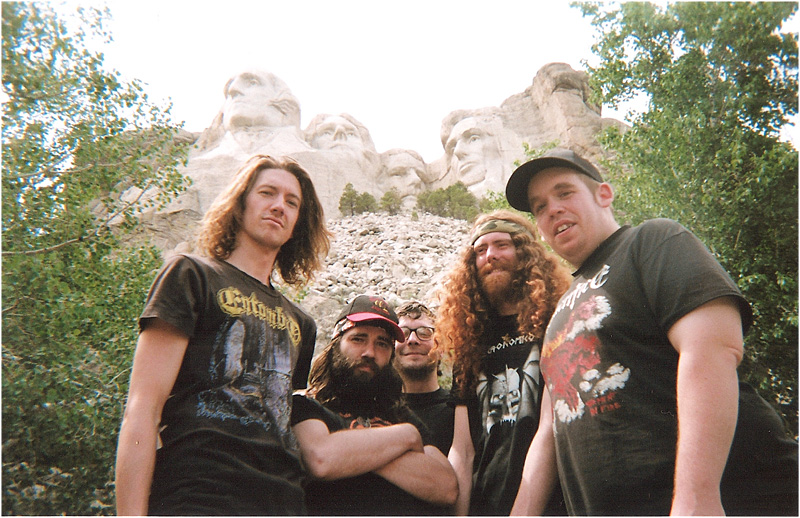While all the critical factors seem to be in place to enable rising stars like avant-garde hip-hop artist Shabazz Palaces or hardcore metal mavericks Black Breath to vault to a national stage, Seattle still doesn’t have a great track record when it comes to pushing our hip-hop and metal artists to a broader audience. Those Seattle bands (or signees of local labels) that hit the level of success that yields invitations to Saturday Night Live and slots on national summer festivals are almost invariably safer-sounding pop outfits like the Shins or something pastoral and pretty like Fleet Foxes. Edgy hip-hop and adventurous hard rock continue to be shut out, which is a damn shame, because those are arguably the genres with the most promising local candidates.
Much like hip-hop, the local metal scene has been on a sharp upswing over the past year or so, and is especially rich at the moment. With the articulate aggression of Dog Shredder, the whimsical menace of Throne of Bone, or the elephantine heaviness of Vultures 2012, it’s a good time to be a fan of loud, drop-D-tuned guitars. House shows and underground parties featuring bands like these seem to multiply every week, and both the Comet and the Sunset host at least a couple of metal shows a week that pack the house. So what’s keeping an act like Black Breath, which plays Neumos this Thursday as part of their dream-date tour with Converge and Coalesce, from finding Mastodon-level success?
Akimbo guitarist Aaron Walters sees a dovetailing of factors, including simple geography. “Seattle’s only legitimate neighboring city with potential for scene partnership is Portland,” he posits. “Metal and hardcore bands in other parts of the country have the benefit of many nearby markets with which to build fan bases, contacts, and a sort of musical/cultural adhesion,” he continues. “Seattle has many bands that sound like they could belong to scenes from all over the country. But they’ll remain marginalized and underappreciated because of their geographic isolation from those scenes.”
Carly Henry, who produces forward-thinking metal shows in Portland and Seattle under the moniker Starbird Promotions, cites metal’s continuing reputation as an inaccessible genre. “My thought is that the key to having a band break big is repetition,” she explains. “If stuff is getting played on the radio and easily accessed by the general public, it becomes beat into their brain, and then over time people don’t even give it a second thought that it might be a genre they wouldn’t normally listen to.
“Since metal is considered a more dangerous music, or weird, or what have you, there aren’t many people who will take the step and play it even if they like it. Metal is still scary to people for some reason. I think that’s also part of the draw for some people.”
Interestingly enough, Boston native Henry also lays some blame on geography, but more on our West Coast mentality than our West Coast location. “I may get shit for saying this—and I don’t mean to offend, I just come from a different place,” she asserts. “The Northwest is a pretty passive place. People seem to like music that is easier to listen to. Down here in Portland, all the bands that get attention are of the dance-y, indie type, and folk rock.”
Walters also sees the problem as something inherent in the community’s collective mentality, but chalks it up to unconventionality. “Seattle bands seem to have a subtle, implacable, Seattle-esque [quality] that seems to sabotage their assimilation into a greater genre-based identity. Mad Rad aren’t Lil Wayne, nor are they Vanilla Ice. These Arms Are Snakes were just a bit too weird for VH1. It seems like Seattle, by virtue of being Seattle, just can’t win. We’re either too cool or not cool enough. But lately, it’s virtually impossible to get it just right.”








